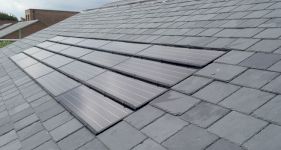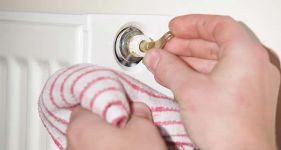Air Source Heat Pump Installation Cost
- The average cost of air source pump installation is around £8,000 in the UK.
- Installing an air source heat pump will take approximately 3 days to finish.
- What the cost of air source heat pump systems are, as well as details about how much air source heat pump installers cost in 2025.
- How long installing an air source heat pump takes, things to consider, and expert advice from tradespeople on MyJobQuote.
- How to find and hire a certified heating engineer near you to perform this installation.
Looking into air source heat pump installation costs?
Air source heat pumps and ground source heat pumps are lower-carbon alternatives to gas and electric central heating systems that are being promoted in the UK.
In 2025, the cost of air source heat pump installation is around £8,000. This includes the approximate price of an air source heat pump, as well as what air source heat pump installers cost in the UK.
This is significantly more than how much a typical combi boiler installation costs (around £2,500).
This guide covers everything you need to know about air source heat pump installation costs in 2025. This includes details of how it might be possible to get money off the cost of an air source heat pump in parts of the UK.
Ready to get a quote?
You can easily and quickly get up to 3 FREE, no obligation quotes from heating engineers near you.
Want to learn more about air source heat pump costs first?
We've got you covered! Check out the full guide below.

£8,000
Table of Contents
What Is the Cost of Air Source Heat Pump Installation?
Air source heat pumps are incredibly efficient at absorbing heat from the outside air and using this to heat radiators or underfloor heating systems. These pumps essentially work in the same way as a fridge extracts heat from the inside.
Air source heat pumps can extract heat from the air even at low temperatures and even though they need electricity to operate, the heat they extract from the air is constantly being renewed naturally.
Air source heat pumps lower fuel bills, especially if you are using them to replace electric heating, plus there is the potential for income through the government Renewable Heat Incentive in the UK.
Are air heat pumps noisy? We're unsure whether the unit that goes outside will annoy neighbours or disturb our peace.
Using an air source heating pump will also lower carbon emissions for your home, and only minimal maintenance is required. Heat pumps deliver their heat at lower temperatures but over longer periods of time, so in cold weather, they may need to be on constantly, and you will notice that the radiators will not feel as hot as they would with a gas or oil boiler.
Unlike other renewable heating technologies, air source heat pump installations require expertise that is different to conventional heating systems.
A poorly installed and designed heat pump system will not heat your home well, and you may struggle to recover your investment in energy savings. You need to ensure the installer you choose is experienced and has a verifiable work history of installing air source heat pumps.
MyJobQuote offers a platform that allows you to request quotes from reputable local installers completely free, by simply posting brief details of your job you can start receiving competitive quotes straight away.
Can you use a heat pump with underfloor heating?
Air Source Heat Pump Prices
| Job Description | Duration | Material Cost | Labour Cost |
|---|---|---|---|
| Installation Air source heat pump 2 bedroom semi-detached | 2 – 3 days | £3,500 | £3,500 |
| Installation Air source heat pump 3 bedroom semi-detached | 3 days | £3,900 | £4,200 |
| Installation Air source heat pump 5 bedroom detached | 3 – 4 days | £4,500 | £6,500 |
Did you know...
According to a 2022 report published by Scottish Power, a heat pump installation can add around 1.7% – 3.0% of additional value to your home!
There seems to be a lot of debate about whether heat pumps work in older homes. What does an old house need for one to work effectively?
Any company that came out to estimate for you would need to carry out quite an extensive survey of the property regarding its heat loss. If they don't carry out this survey, they are not worth dealing with.
The problem with our older housing stock is they were built during an era of cheap energy, open chimneys, and cavity walls with no insulation. They just haemorrhage the heat you have produced, I'm afraid.
In summary, it is all about the insulation levels as others here have mentioned."
Things to Consider About Air Source Heat Pumps
Air source heat pumps work by absorbing heat from the air at low temperatures into a fluid. This fluid is then passed through a compressor to increase its temperature and transfers this higher temperature heat to the home heating and hot water systems.
Although they all work in much the same way, there are two different types of air source heat pump heating systems in practice: “air to water” and “air to air”. Air-to-water systems distribute heat via your wet central heating system through conventional (though much larger) radiators or “wet” underfloor heating systems.
Air-to-air systems produce warm air, which is circulated throughout your home by fans. Air-to-air systems do not provide hot water, so another heat source will be required, whereas air-to-water systems do actually provide hot water, so they can, in some cases, be used without a backup heating source.
Are air source heat pumps easier to install than ground source heat pumps?
Though it is recommended that heat pumps are supplemented with conventional heating systems as, there may be periods where they cannot provide for all your heating needs.
To install an air source heat pump, you have to have somewhere to put it. You need a place outside your home where the pump unit can be installed with plenty of space around it for good airflow.
If your home is not already well insulated, then fitting a heat pump is a waste of money as they work best when producing heat at a lower temperature than traditional boilers, so it’s vital that your home is well insulated.
Air source heat pumps will pay for themselves much more quickly if replacing electricity or solid fuel heating systems. However, heat pumps may not be the best option if you already use mains gas with an efficient boiler.
For a hybrid heating system, is it better to have a ground source heat pump installed or an air source heat pump? What would you recommend?
Can You Install a Air Source Heat Pump Yourself?
Air source heat pump installers must be F-Gas certified to fit an air source heat pump, as they contain refrigerants.
If you install this yourself or use a tradesperson who is not F-Gas certified, then the installation will be non-compliant under UK law.
In addition:
- The installation of the air source heat pump might be incorrect, which could mean it's unsafe.
- Your home insurance may not cover you for any related problems that arise because of the installation.
- You may immediately void the heat pump's manufacturer warranty.
- An F-Gas certified tradesperson would have to carefully inspect and approve that the installation is correct. If reinstallation is required, this may result in significant additional costs.
If you are looking to take advantage of government-backed grants in England or Wales, then you will also need to ensure that you find an air source heat pump installer who is MCS-certified.
Only MCS-accredited installers are able to sign off on heat pump installations that comply with the government’s schemes.
If you're eligible, then it's currently possible to get £7,500 off the installation of air source, ground source, water source, and biomass boilers via the Boiler Upgrade Scheme. Additional funding has recently been allocated, so this scheme will now run until 2028.
What is the RHI scheme and how do I know if I am eligible?
Checklist: Air Source Heat Pump Installations
- Air source heat pumps are easier to install than ground heat pumps.
- You must get your heat pump fitted by an MCS-accredited installer.
- Air-to-air heat pumps do not provide hot water.
- Air source heat pumps work best with underfloor heating.
FAQs
What is a heat pump?
Can the heat pump completely replace your gas or oil boiler?
What other benefits are there from using a heat pump?
How does a heat pump save me money?
With a professionally installed heat pump set up, the cost of the electricity required will be considerably lower than the equivalent heating costs with a conventional boiler.
What types of heat pumps are available?
Sources
https://www.gov.uk/apply-boiler-upgrade-scheme
https://www.ofgem.gov.uk/environmental-and-social-schemes/boiler-upgrade-scheme-bus
https://www.gov.uk/guidance/qualifications-required-to-work-on-equipment-containing-f-gas
https://mcscertified.com/consumers-communities/certificate-queries/
https://web-content.scottishpower.co.uk/files/pdf/Better_Home_Cooler%20Planet_Final_Web_Report_19_July_2022.pdf









